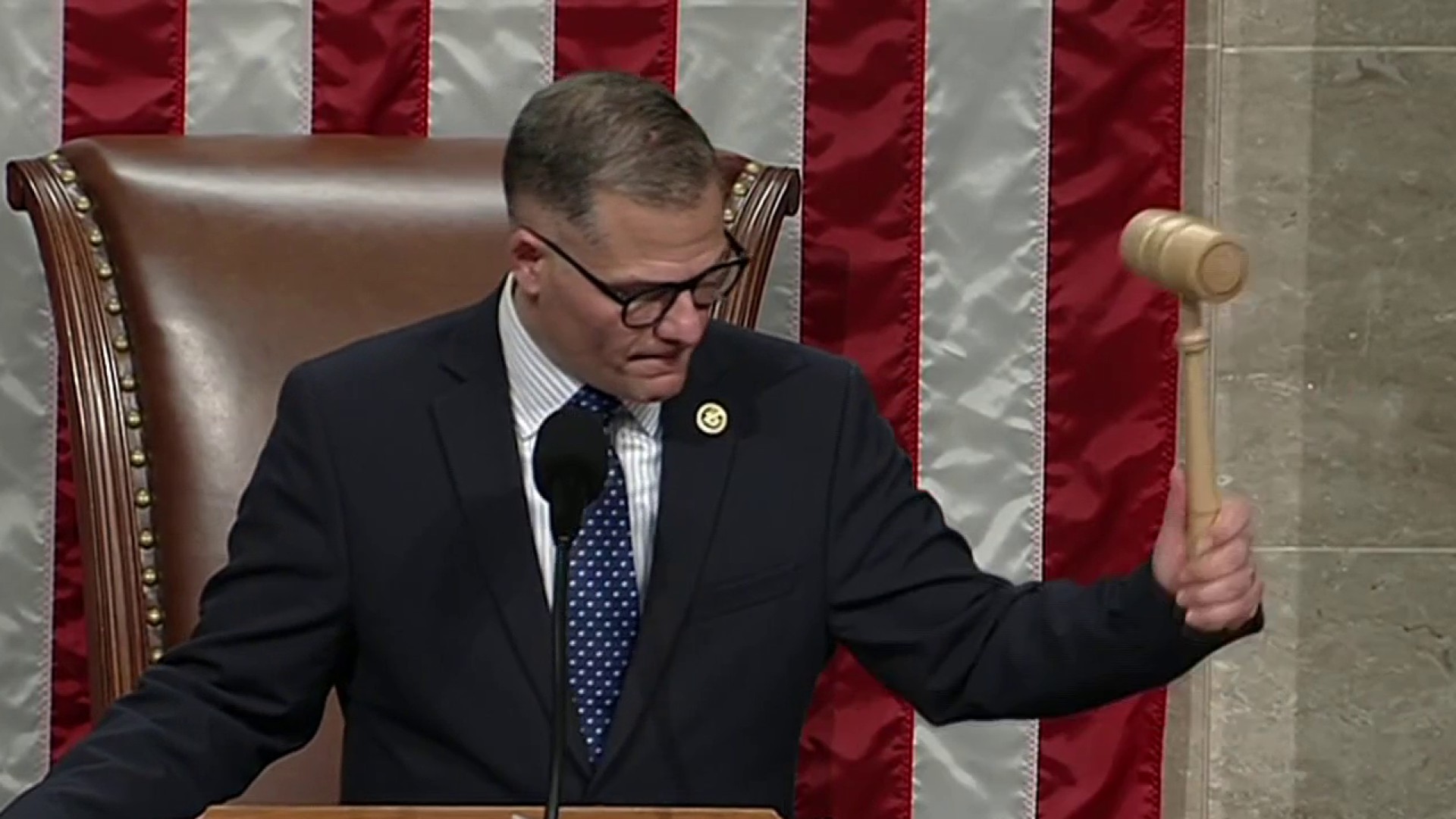A federal program that grants immigrants a faster track to citizenship after filing a domestic abuse claim is vulnerable to fraud, according to a new report from the Government Accountability Office.
In 2018, nearly 13,000 immigrants filed claims using a provision in the Violence Against Women Act (VAWA) as a path to gain legal permanent residence in the United States. The program allows immigrant abuse victims to self-petition and removes the alleged abuser who sponsored them into the country from the process.
The report says fraud referrals involving VAWA self-petitions have more than quadrupled in the past five years.
"They're now using VAWA as a means by which to escape the two-year requirement to remain in the marital relationship without drawing any suspicion to themselves," said retired ICE Agent John Sampson, who told the News4 I-Team he was interviewed by GAO in conjunction with the report.
Sampson now works as a consultant helping Americans who believe they were victims of marriage fraud. He said more than 1,500 people have contacted him. He's critical of the system which provides them little recourse.
"The law as it was passed and enacted prohibits USCIS from considering any adverse information the U.S. citizen spouse or their family may present to them," Sampson said.
The News4 I-Team interviewed Sampson in February 2018 during a series of stories on marriage fraud.
Local
Washington, D.C., Maryland and Virginia local news, events and information
Americans claimed they were duped by foreigners who wanted to remain in the country and that the VAWA provision provided a loophole in the immigration system. Since the stories aired, more than 50 additional victims have contacted the I-Team with similar stories.
The GAO report was requested by Congress after hearing from several of the people featured in the I-Team's reporting. The number of self-petitions filed by immigrants in the past five years has increased by more than 70%.
Investigators reviewed 631 closed cases that involved a VAWA petition and found fraud in 53%, or 332 cases. An additional 238 cases were found to be inconclusive.
The U.S. Citizenship and Immigration Service has developed anti-fraud training for employees who review the VAWA self-petitions.
But the report says the agency should do more. It recommends USCIS plan and conduct regular fraud risk assessments and implement an anti-fraud strategy. It also suggests employing data analytics to prevent and detect fraud.
In a statement to the I-Team, a USCIS spokesperson said, “USCIS is committed to combating immigration fraud at all levels. As noted in the GAO report, we concur with the three recommendations and are strengthening our risk management and anti-fraud capabilities. Intensifying our efforts to identify, detect, and prevent fraud are tangible demonstrations of this administration’s commitment to protecting the integrity of our immigration system.”
Many of the Americans who said they were duped by foreign spouses told the I-Team they tried contacting USCIS, ICE and other law enforcement agencies but had trouble getting anyone to investigate at the time.
One military service member told the I-Team he fell in love with a Russian woman who was already living in Maryland after splitting with a prior boyfriend. The new couple dated for about a month and a half before getting married.
"[I] hit the lottery; I'd found the woman of my dreams," he told the I-Team.
But within a week he said she disappeared and later accused him of abuse.
"I was humiliated beyond belief," he said. "To me this was worse than being left at the altar."
He could have lost his job and security clearance. He said his Russian wife knew more about the U.S. immigration system than he did.
When the I-Team tried to track her down at a home in D.C. in 2018, a man told us she'd been staying there and that he and his wife have taken in lots of Russian women through their church.
When asked if he ever saw signs of abuse, he said no, referring to her claims as " B.S."
When asked why that would happen, he mentioned the legal loophole.
"All the Russian women know this particular rule and get an edge," the homeowner said.
VAWA advocates say the existing law serves an important purpose because immigrants can be a prime target for abuse by their spouse and citizenship can be used as means to manipulate them. False claims can harm real victims.
This summer, a federal grand jury indicted New York immigration consultant Arleigh Louison for making false statements involving VAWA claims. Prosecutors say he filed more than 1,800 fraudulent immigration applications. He says he did nothing wrong.
"Applying for the benefit is not fraud, it is applying for a benefit. If after you determine that the person does not qualify, it's still not fraud, they just don't qualify," Louison said.
He told the I-Team he's filed thousands of VAWA claims on behalf of clients seeking citizenship, which also allows them to get work authorization while the paperwork is being reviewed. Prosecutors said the immigrants were not aware of what Louison filed.
"Everybody knows exactly what they're doing when they come here," countered Louison. "I cannot be the gatekeeper as to whether or not this claim is true or false. I cannot be."
But, for American spouses, those abuse claims can be costly. Some have had to hire attorneys and spend years defending themselves.
The military member in Maryland told the I-Team, even with his high security clearance, no one would listen to his case.
"I was really, really disappointed in our immigration laws," he said.



